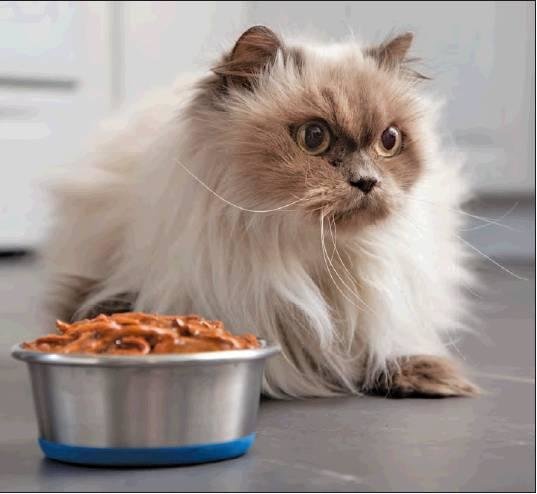Furry Friends
Is your cat a picky eater?
Irecently attended a veterinary conference that was dedicated just to cats.
One of the many issues discussed was focusing on healthy weight in senior cats.
Food preferences are learned very …
This item is available in full to subscribers.
Subscribe to continue reading. Already a subscriber? Sign in
Get 50% of all subscriptions for a limited time. Subscribe today.
Please log in to continueNeed an account?
|
Furry Friends
Is your cat a picky eater?
Irecently attended a veterinary conference that was dedicated just to cats.
One of the many issues discussed was focusing on healthy weight in senior cats.
Food preferences are learned very early. This includes taste, shape, textures, and sources of food.
These preferences are very difficult if not impossible to change later. This why you can have a cat that only wants to eat dry food or only wants to eat chicken-flavored canned food.
You buy a smorgasbord for your senior cat, and he or she won’t touch certain ones. It becomes an issue if medical problems arise that require new food. Food flexibility is achieved by learning.
Between 4 weeks and 6 months of age you need to introduce your cat to many different types of food. The dry food should include different types and textures. You want your cat to be comfortable with different shapes of kibble.
The same applies to canned food which comes in stews, pates, and flakes. You also need to offer different flavors such as chicken, beef, and seafood. You should continue to offer different foods after 6 months of age, though, you can have one main diet at that time. If you first start trying to offer different foods after 6 months it will rarely work. You must continue to stay with different food types throughout your cat’s life. The other benefits of feeding in this manner is that water needs are better supported and calories are better controlled.
Having mentioned calories that leads to the next topic about cats, promoting a healthy weight in our senior cats.
The body condition of cats is related to their overall health and well-being. Being too fat or too skinny increases health risks. This is especially a problem with senior cats. Almost half of our cats have issues with obesity including senior cats. Some of our senior cats have issues with weight loss which is often related to chronic illness. What you as an owner want to do is preserve lean body mass to help ensure a healthier cat.
We see skinny senior cats every day in our practice. The weight loss is usually associated with shortened life spans. There are 2 types of weight loss we see. Cachexia is a loss of lean body mass. It is often seen in cats that have chronic disease such as chronic kidney disease, heart disease, and cancer. The weight loss in cachexia is different from having your healthy cat lose weight. This means your cat is losing muscle mass.
Sarcopenia was first meant to represent age-related muscle loss. It is also associated with loss of lean body mass. What is different from cachexia is that it is not associated with chronic illness. Also in sarcopenia the loss of lean body mass is associated with an increase in fat mass so your cat may not appear to be losing weight. The fat mass doesn’t change or may increase which can cover up the muscle loss associated with sarcopenia. Like cachexia, sarcopenia effects quality of life and strength leading to increased frailty.
If your cat is losing weight, he or she should be evaluated by your veterinarian. They will likely recommend blood work in order to evaluate for underlying disease.
Food offered to cats with cachexia and sarcopenia should be complete and balanced and be tasty to your cat. Your veterinarian can make recommendations for you, though, in the end it comes down to what your cat will actually eat.
Sometimes what your vet wants your cat to eat and what he or she will eat it is not the same thing. Loss of appetite is common in cats with chronic disease. It may cause some to have cyclical appetites. They will eat one food for several days or weeks and then refuse to eat it, only to eat it again at a later date. Be sure and work with your veterinarian or a veterinary nutritionist to formulate a balanced diet so that you have the right amount of protein along with the proper vitamin and mineral content.
Next: How to manage an overweight cat.
Other items that may interest you










Comments
No comments on this item Please log in to comment by clicking here